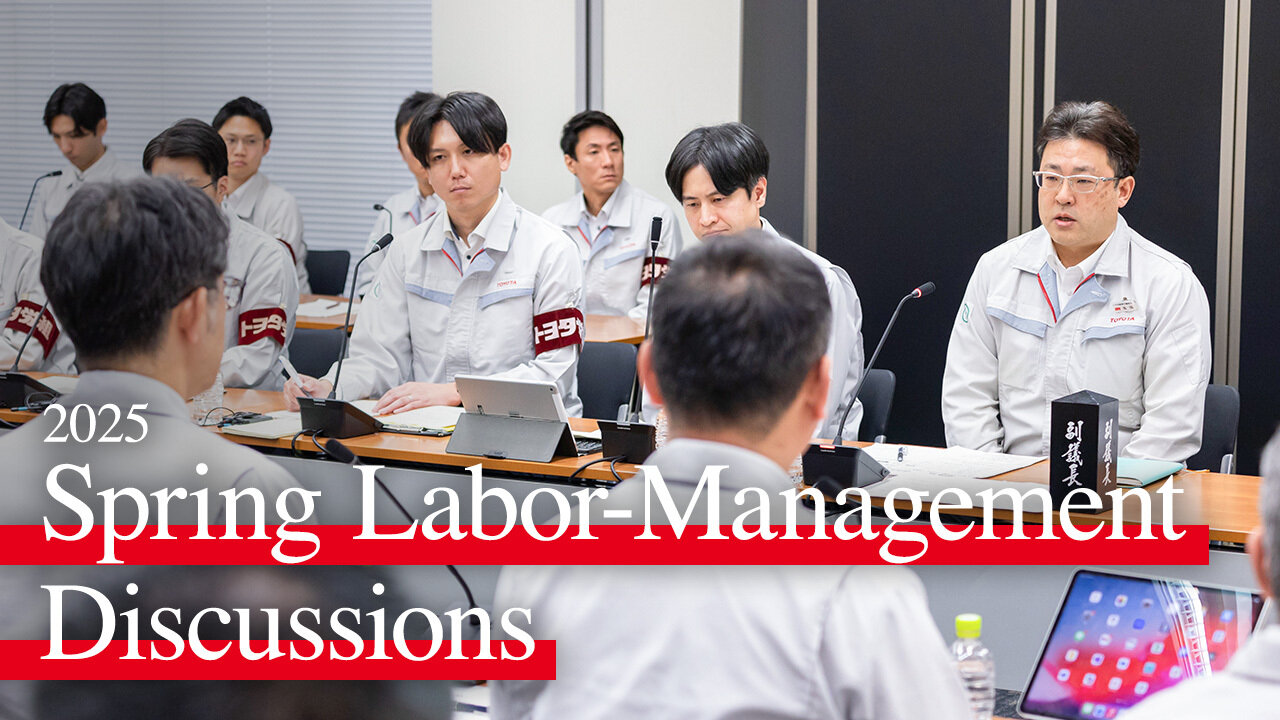
The second round of labor-management discussions--unusually held at the group level--focused on instilling a "sense of ownership." In an era of greater job choice, with work styles and personnel becoming ever more diverse, President Koji Sato spoke about the meaning of "uniformity."
The labor union’s response
Secretary-General Mitsuda
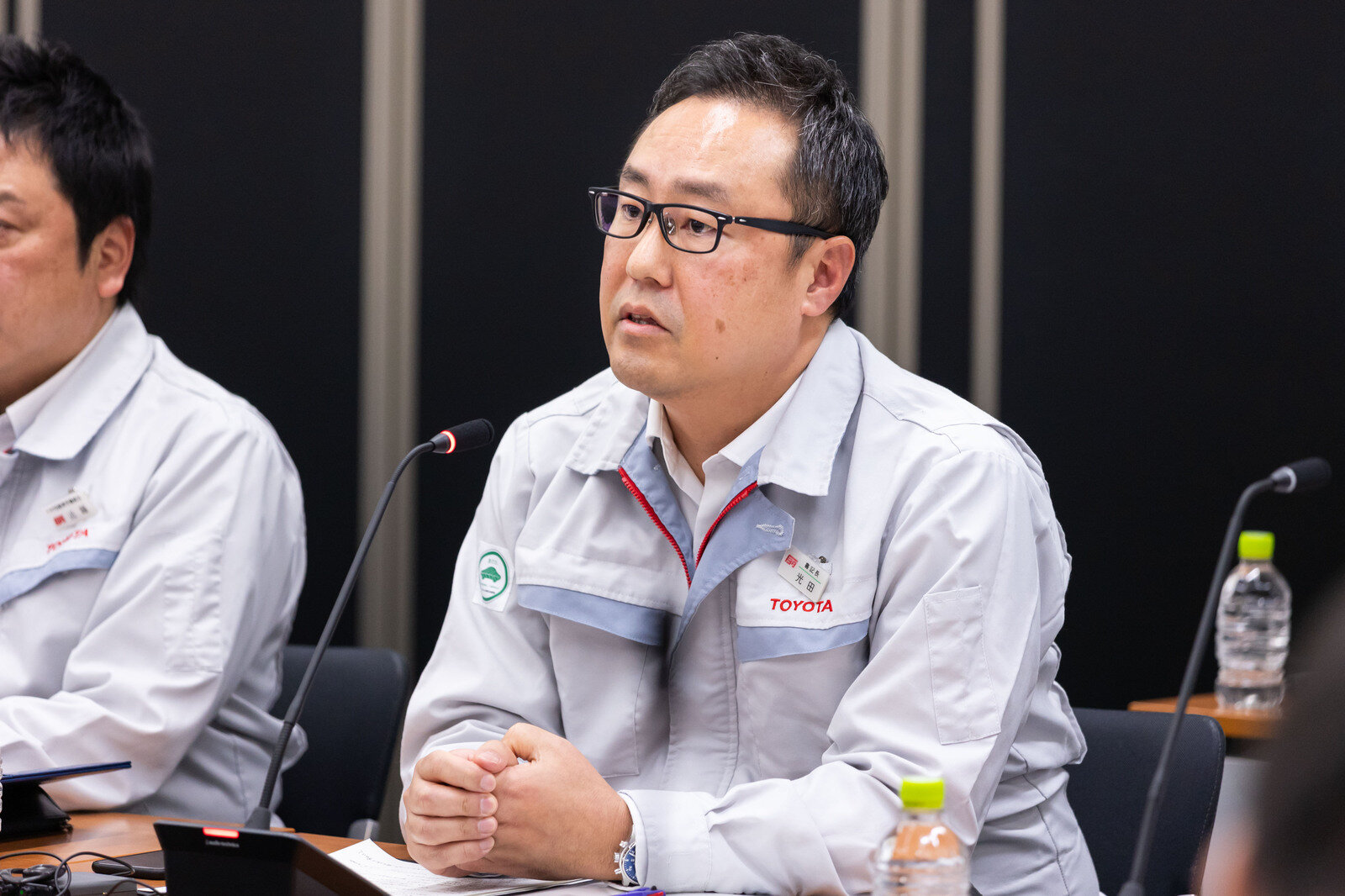
Mr. Miyazaki pointed out that he wanted to “go a step further,” and I think we have to take that comment seriously.
There are many aspects of the workplace that would stop someone from stepping outside the box and trying to change things on their own initiative.
The recent effort to decide matters within individual workplaces highlighted this reality, and teams struggled to reach decisions. We realized once again that obstacles stand in the way.
Mr. Nakajima spoke of working for others, suggesting that, if we had been concerned with the future, junior colleagues, and the future of our workplaces rather than our own recognition, our comments would have been different. It made me think that we need to change our mindset.
The recent talks were focused on decision-making at the workplace level. In the past, workplace roundtables were merely a forum where the union voiced concerns and the company listened; however, since the 2019 labor-management discussions, we have gradually transformed them into constructive platforms for both sides.
The next step is to focus on getting things moving, one or two decisions at a time, without letting ourselves off the hook by treating this as a family chat where things rarely get decided. I think addressing Mr. Miyazaki’s comments will serve as a catalyst for change.
Vice Chairman Eshita
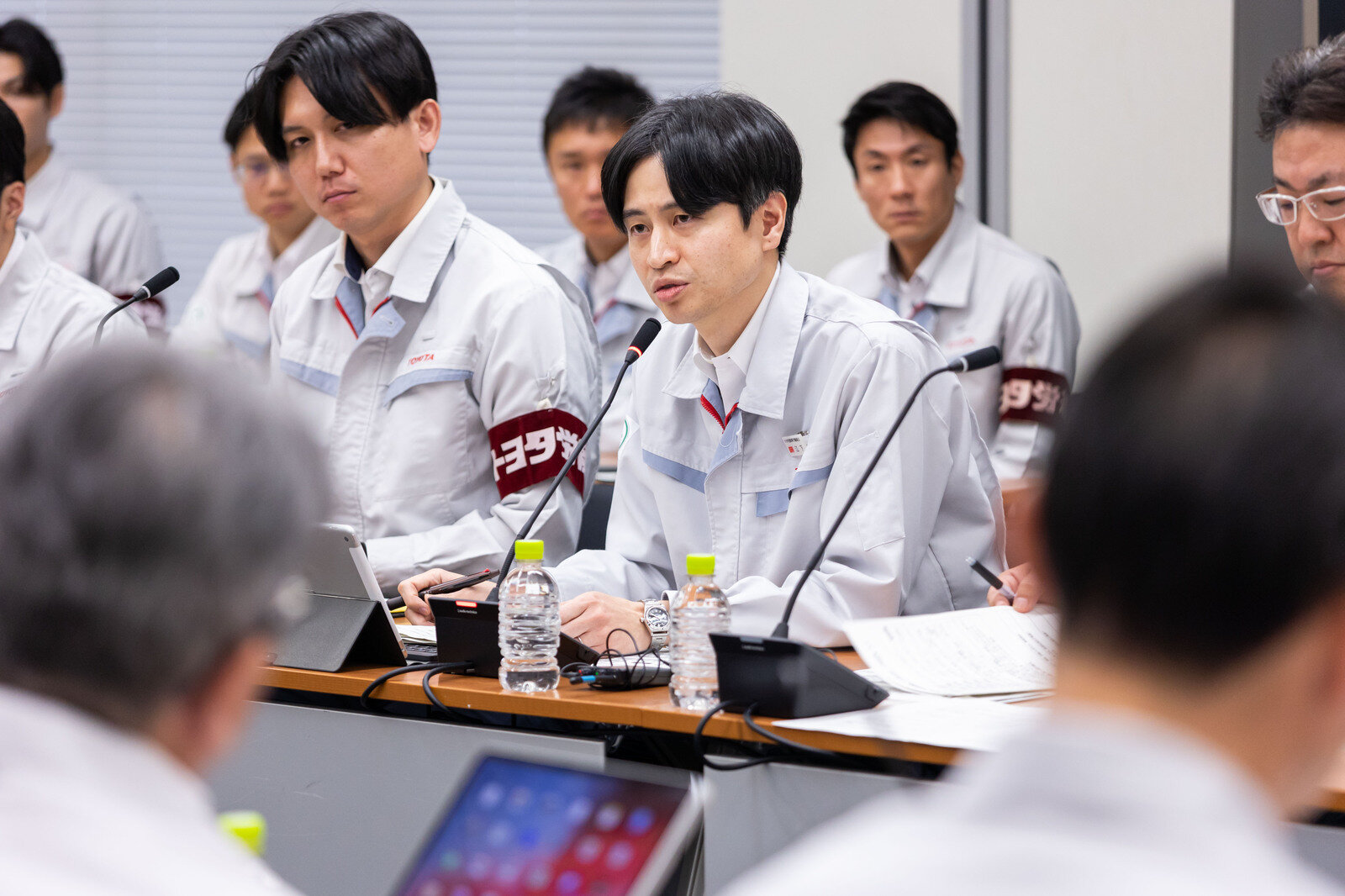
With the dizzying pace of change in both the competitive environment and the way each of us works, as Mr. Miyazaki said, we need to have a healthy sense of urgency, knowing that if we’re not careful, we will lose our footing.
Each of us must look beyond our own current duties and established workflows to figure out the true purpose of our work from the customer’s perspective.
How can we create more competitive products, and boost our productivity? I think we each need to ask ourselves these questions and proactively engage those around us to work as a team.
I think today’s discussions revealed that we tend to rely too much on the company.
Our mission is to produce “happiness for all,” and even for our own lives, I believe that requires continuous effort.
To begin making changes for the future, I would like to see employees and management tackle each issue in turn.
Engaging workers in an age of choice
Oyaji Mitsuru Kawai, who chaired the discussions, wrapped up by posing a question to both sides.
Oyaji Kawai
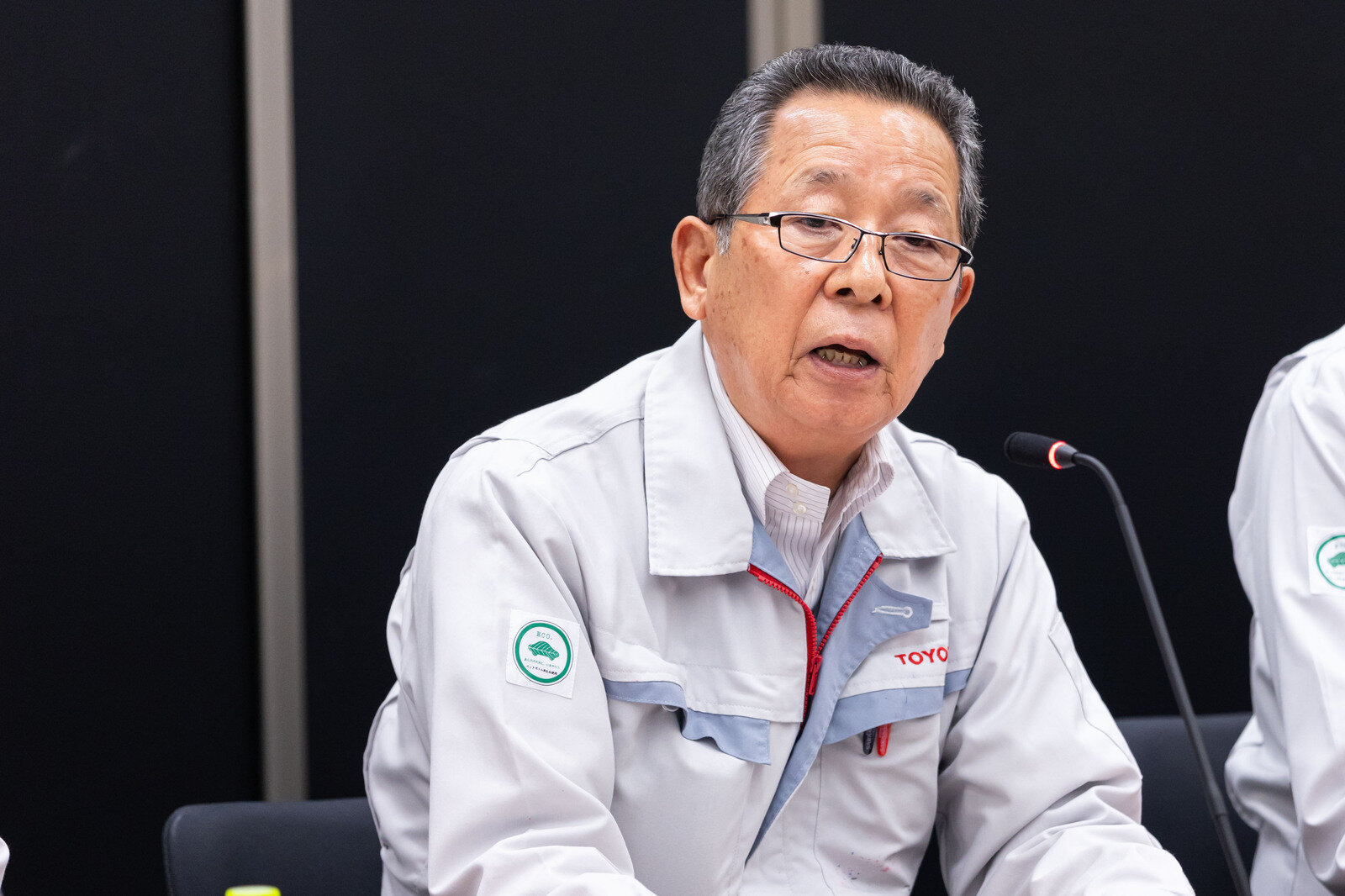
I hope the workplace-level labor-management discussions helped people recognize that, in many workplaces, boosting individual fulfillment and harnessing the strengths of diverse members contributes to long-term productivity and makes us more competitive.
I believe that fulfillment can only be attained through personal growth.
Whereas in the past workers had to adapt to fit the job, today people can choose their job and the way they work.
How do we help each individual to grow, and enable everyone to flourish and be fulfilled? As we heard today, employees and management must work together to create systems that properly recognize and reward every team member.
I hope that everyone will also consider the interests of their workplace and take action in any way they can.
I want us to continue engaging in candid discussion and strive to become a mobility company where those who take our place—in five, ten, or fifty years—can happily enjoy their work.
An evaluation system for an era of diversity
Lastly, we share the closing comments from Chairman Kito and President Sato.
Chairman Kito
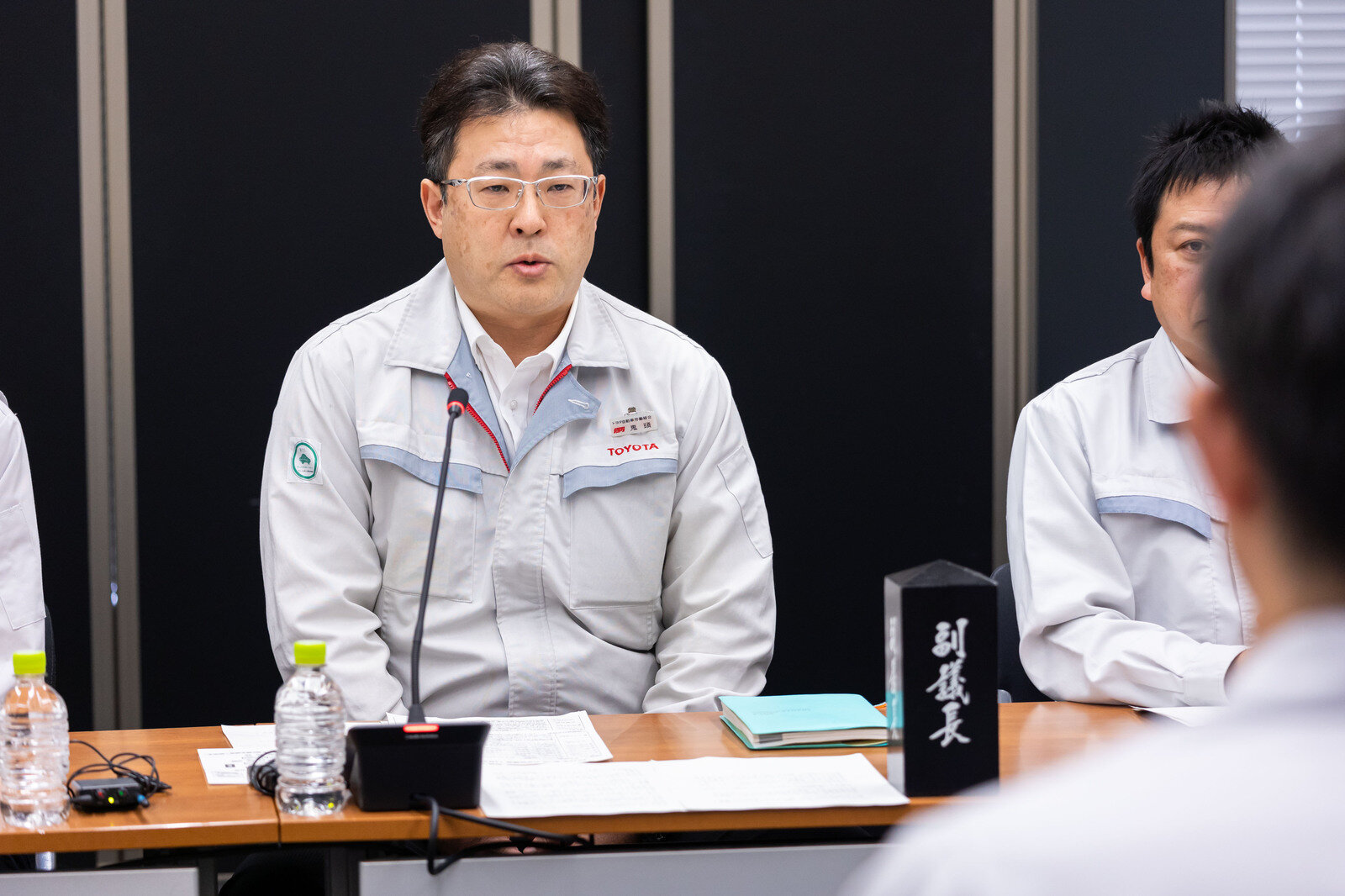
I think we must first restore our labor-management talks to their proper form, continuing to discuss the issues that arise within each workplace and bringing those that are too difficult to resolve into these company-wide forums, where we can deliberate and make decisions.
Regardless of how the talks are structured, I believe the most important thing is that both sides look to the future with a shared vision and discuss matters candidly. On the union side, I want to refocus our energies on drawing out and delivering honest feedback from workplaces, as we strive to create environments where every member feels they have a personal stake in matters and can act autonomously.
I believe that a union should be a horizontal organization, not a vertical one. In my understanding, the role we should serve is to share ideas about the kind of workplace people want to create, to listen to voices that would not otherwise be heard along the company’s vertical lines, to talk with company personnel, and to turn these discussions into concrete action.
For issues that span the entire company, it is often difficult to find quick solutions. But I think we need to start by confronting these challenges head-on and taking action.
If you simply look at recent earnings, Toyota is doing well, and our union members are kept busy with the work at hand. However, I believe the company was in a similar situation in 2008, before we fell into the red.
What I mean is that simply pouring everything into the work in front of you does not guarantee a future.
Right now, change is happening at incredible speed, not just in the competitive environment but also impacting the way we work in areas such as AI and automation.
“Just do what you are told, stay within your lane and stick to the way things have always been done.”
We must shed this kind of thinking and always be conscious of our own expertise and the value we can add to our work, seeking to maximize results through teamwork with diverse members. If we cannot do this, a decade or two from now there won’t be a future for us. All of us must recognize this as our own challenge and change our own approach to work. Our members will work together to continue honing the skills necessary for the monozukuri genba.
With regards to wages and bonuses, new issues have arisen in addition to the items mentioned in our initial discussion list, which included the business environment and work practices.
On behalf of the union, we make these demands with a commitment to ensuring that every person working at Toyota can find their own fulfillment and be a driver of change, boosting the company’s productivity and competitiveness, and thereby creating a future for the automotive industry and Japan.

